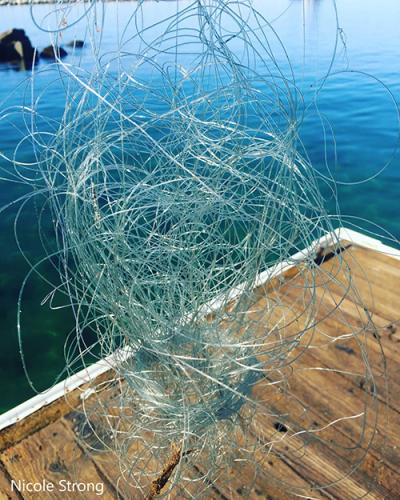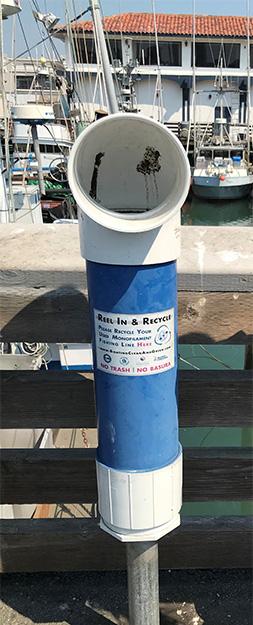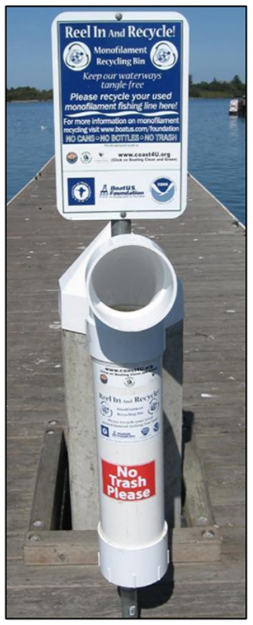California Sea Grant’s NOAA Marine Debris Program Extension Fellow Tanya Torres recently coordinated the distribution and installation of 50 new fishing line recycling bins at harbors, marinas and popular recreational fishing spots throughout California. The effort is part of the California Fishing Line Recycling Program, established in 2009 by the California State Parks Division of Boating and Waterways and the California Coastal Commission's Boating Clean and Green Program to reduce the amount of marine debris pollution from fishing line and tackle. To date, the program has installed 280 recycling bins and recycled 3,027 pounds of fishing line.

While biodegradable options for fishing line and equipment are increasingly available, much of the fishing line still used is made of plastic and is not biodegradable. Line that is broken, improperly disposed of or left behind can entangle and kill wildlife, damage boats and remain in the environment for years. According to research in collaboration with the NOAA Marine Debris Program, plastic fishing line takes 600 years to decompose; however, it doesn’t completely degrade but instead breaks down into microplastics, which pollute the oceans, become increasingly toxic, harm marine life and are passed through the food chain. With hundreds of thousands of recreational fishermen in California, lost or discarded fishing line and tackle is a primary source of marine debris pollution.
To determine the best location for additional fishing line recycling bins, the California State Parks Division of Boating and Waterways and the California Coastal Commission conducted outreach to marinas, piers, parks and other locations frequented by fishermen. As a result, recycling bins are now located along California’s coast, inland lakes and rivers.
Additionally, the California Coastal Commission provided fishermen with shipping materials to send used fishing line to Berkley, a division of the retailer Pure Fishing, for proper disposal if bins are not available in their area. Fishing line is made of a high-density plastic that requires specialized processing not available at traditional recycling facilities. Berkley works with state and federal agencies worldwide to recycle fishing line that is turned into plastic pellets, which are used to produce new materials such as benches, tackle boxes and new fishing line.
“Next steps for this project are to increase awareness of the bins and encourage recreational fishers to use them correctly,” says Torres. “In the future I hope the program is able to expand further and continue to keep broken or discarded fishing line out of the environment.”
The statewide awareness campaign uses social media and improved signage at bin locations to increase the amount of fishing line collected for recycling. Additionally, state agencies are investigating an incentive-based program to change behavior and motivate more recycling participation, and the national Stow it-Don’t Throw It program empowers people of all ages to create simple fishing line recycling containers from tennis ball cans to reduce plastic marine debris.
To learn more about the California Fishing Line Recycling Program or to view an interactive map and a county list of all fishing line recycling bin locations, visit the Division of Boating and Waterways website. Used fishing line may also be mailed directly to Berkley collection center at 1900 18th Street, Spirit Lake, Iowa 51360-1099.

